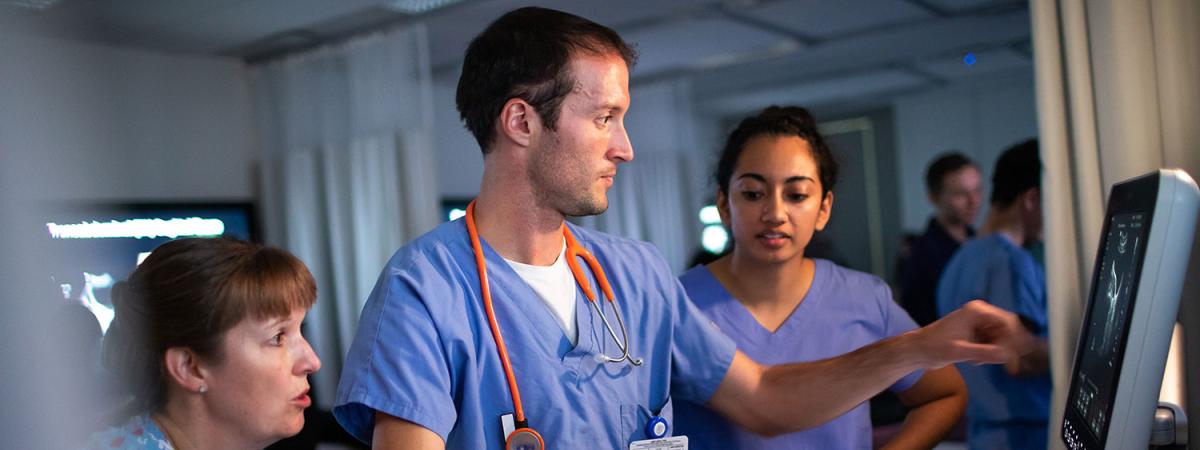University Program Curriculum
The redesigned, four-year Western Reserve2 (WR2) Curriculum in the four-year MD University Program at Case Western Reserve University School of Medicine builds on our long tradition of forward-thinking advancements and medical education "firsts" to unite the disciplines of medicine and public health.
This single, integrated program will train you to study the interplay between the biology of disease and social and behavioral contexts of illness. Between the care of individual patients and the health of the public and clinical medicine and population medicine, you’ll become a leader in science, practice and healthcare policy.
Here’s a look at how you’d spend your four years in our program:
- Year 1: Social and behavioral context of health and disease; Foundations of Medicine and Health
- Year 2: Continuation of Foundations of Medicine and Health and time to prepare for USMLE Step 1
- Year 3: MD thesis research block or clinical blocks (basic science experiences interwoven); advanced clinical studies and seminars in medicine and health electives
- Year 4: Research (as applicable); advanced clinical studies and seminars in medicine and health
Download our Year-by-Year Curriculum Overview
Curricular Themes
The Western Reserve2 Curriculum combines four themes to prepare you for the ongoing practice of evidence-based medicine in the rapidly changing healthcare environment of the 21st century. These themes include:
- Research and scholarship
- Clinical mastery
- Leadership
- Civic professionalism
As a student, you’ll be immersed in a graduate-school atmosphere characterized by flexibility, independent study and collegial interaction with faculty to become a physician-scholar prepared to treat disease (and disease states), promote health prevention and maintenance and examine the social and behavioral context of illness.
Scholarship and clinical relevance inform learning processes, and clinical experiences and biomedical and population science span the four years of the curriculum.
The WR2 Curriculum also creates an independent, educational environment where learning is self-directed. In this way, student education primarily occurs through:
- Faculty-facilitated, small-group, and student-centered discussions known as InQuiry Teams;
- Large-group interactive sessions, including didactic sessions that offer a framework (lectures);
- Interactive anatomy and histology sessions;
- Clinical skills training; and
- Early and frequent patient-based activities.


